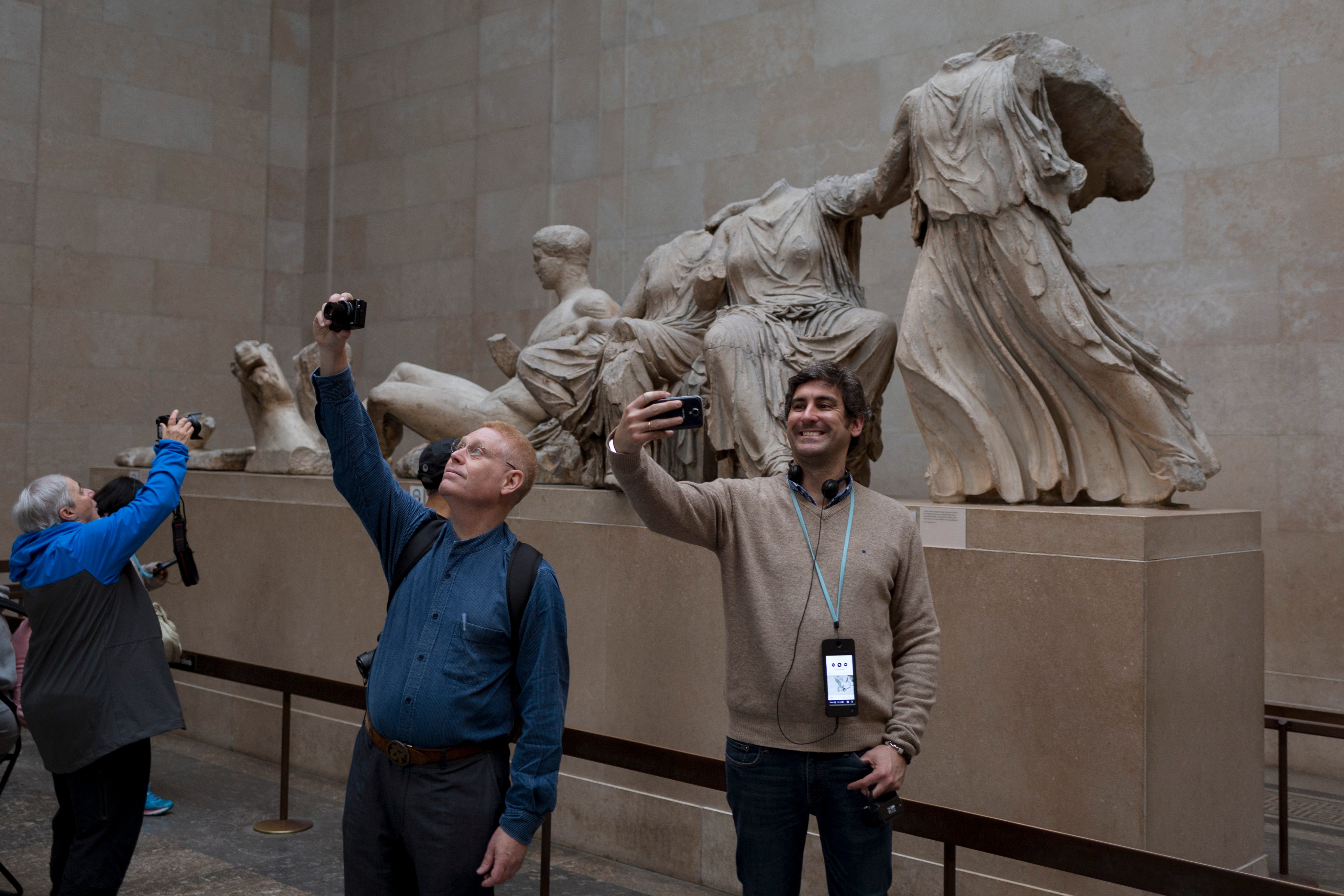
The endless debate over the return of the Parthenon Marbles to Greece could soon see a hopeful conclusion as the British Museum has confirmed that it is engaged in “constructive discussions” with Athens.
“We’ve said publicly we’re actively seeking a new Parthenon partnership with our friends in Greece and as we enter a new year constructive discussions are ongoing,” a British Museum spokesperson told Artnet News.
The statement came after the Telegraph reported that the London institution’s chairman, George Osborne, has drawn up a landmark deal with Athens to possibly return the cultural treasures after 200 years as part of a “cultural exchange” that would effectively be a “loan agreement.” The exact details of the agreement have yet to be announced, but according to the Telegraph, the sculptures would likely be sent over in small groups, rather than being transported all in one go.
The Parthenon Marbles were removed from the Acropolis in Athens by the British aristocrat Lord Elgin in the early 19th century. They were then bought by the U.K. government for the British Museum in 1816. But the 17 artifacts that have been among the most treasured exhibits at the museum have become a center of controversy in recent years. Greece has maintained that it is the rightful owner of the sculptures and has been calling for their return. The marbles held in the British Museum make up 30 percent of the Parthenon Temple’s sculptures.
The British Museum has been under considerable pressure to return the works amid an ongoing wave of historic artifacts being restituted, including three Parthenon fragments from the Vatican which the Pope recently ordered to be returned.
The museum’s trustees, who under British Law are the legal owners of the sculptures, are free to enter into a discussion with anyone they want, a spokesperson for the U.K. Prime Minister Rishi Sunak has previously said. But the museum was also warned by the government that selling or giving away any objects from its collection (except under a few limited conditions) would breach the 1963 British Museum Act. Last month, the British government rejected a call to amend the law.
Nevertheless, this “cultural exchange” deal is unlikely to resolve the row over the sculptures in the long run, the Telegraph wrote, as Greece will continue to seek full legal ownership of the works.